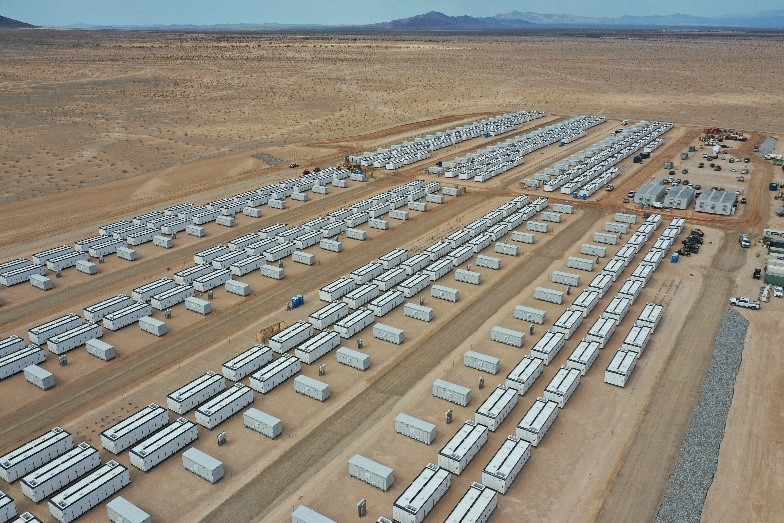Canadian Solar will this week launch a utility-scale lithium-ferro-phosphate (LFP) battery with a 2.8 MWh energy capacity. LFP chemistry is hailed for cutting the risk of thermal runway, or fires, that can be problematic in other lithium-based battery systems.
Called the SolBank, the system is designed for safety, reliability, and bankability. The battery enclosure contains liquid cooling mechanisms and humidity control, and active balancing battery management systems. The company said the technology complies with the latest international safety standards.
Canadian Solar’s majority owned subsidiary CSI Energy Storage produces the unit in Jiangsu Province, China. The current annual battery manufacturing output capacity is 2.5 GWh and is expected to reach 10 GWh by the end of 2023.
CSI Energy Storage also provides full commissioning and integration services, turnkey engineering, procurement, and construction project execution and long-term operational service and capacity maintenance. As of Q2 2022, the company’s system integration total pipeline reached 11 GWh, including 861 MWh under long-term service agreements, 1.9 GWh under construction or contracted and an additional earlier stage pipeline of 8.2 GWh.
“Our manufacturing capacity in battery storage will spur the continued growth of our battery storage solutions business, which will in turn enhance the synergies with our battery storage project development business,” said Dr. Shawn Qu, chair and CEO of Canadian Solar. “Solar plus battery storage will be one of the key solutions to combat climate change.”
The announcement comes after Canadian Solar recently unveiled an all-in-one residential battery and hybrid inverter, called the EP Cube
One unit can scale from 9.9 kWh to 19.9 kWh in capacity, and up to six units can be connected in parallel, achieving 119.9 kWh of storage and 45.6 kW output, said the company. This is more than enough to fully power the average home with high-surge-current appliances and AC units.
EP Cube is designed to be lightweight and easy to install, featuring all-inclusive components and self-configuration for fast commissioning. Each battery module weighs less than 70 lbs., significantly lower than many residential units, which can weigh upwards of 300 lbs. The battery module measures only 6.25 inches thick and is NEMA 4X rated for both indoor and outdoor use.
The battery is compatible with the EP Cube app, which allows homeowners to monitor production and consumption in real time. Homeowners have access to their energy management through the app, and installers use the app to set up and troubleshoot the system. Updates are made remotely to the battery management system.
Over the past two decades, Canadian Solar has delivered over 76 GW of solar modules to customers across the world. Since entering the project development business in 2010, the company has developed, built and connected over 6.8 GW in over 20 countries across the world. Currently, the company has about 311 MW of solar projects in operation, 5.3 GW of projects under construction or in backlog (late-stage), and an additional 21 GW of projects in pipeline (mid- to early-stage).
This content is protected by copyright and may not be reused. If you want to cooperate with us and would like to reuse some of our content, please contact: editors@pv-magazine.com.









1 comment
By submitting this form you agree to pv magazine using your data for the purposes of publishing your comment.
Your personal data will only be disclosed or otherwise transmitted to third parties for the purposes of spam filtering or if this is necessary for technical maintenance of the website. Any other transfer to third parties will not take place unless this is justified on the basis of applicable data protection regulations or if pv magazine is legally obliged to do so.
You may revoke this consent at any time with effect for the future, in which case your personal data will be deleted immediately. Otherwise, your data will be deleted if pv magazine has processed your request or the purpose of data storage is fulfilled.
Further information on data privacy can be found in our Data Protection Policy.